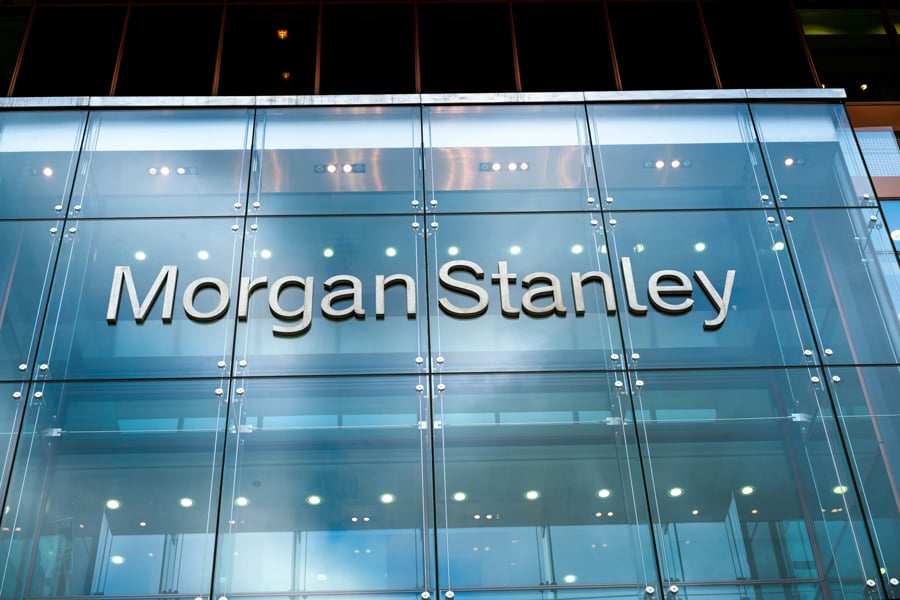

U.S. authorities are examining the involvement of one of Morgan Stanley’s top equities executives in block trades as part of an investigation into whether banks improperly alerted certain clients to market-moving transactions, according to people with knowledge of the matter.
Pawan Passi, who ran Morgan Stanley’s U.S. equity syndicate desk and led the firm’s communications with investors for equity transactions, is among the individuals whose activities are facing scrutiny, the people said, asking not to be identified describing the confidential inquiry. Bloomberg reported in November that the company had put Passi on leave.
Morgan Stanley is at the center of a sprawling investigation by the Securities and Exchange Commission and Justice Department, which are digging into how bankers work with hedge funds to privately carry out stock sales big enough to send market prices tumbling. The probe, which emerged in press reports earlier this week, is gathering information on the activities of a slate of money managers and at least one other competitor, Goldman Sachs Group Inc. Authorities haven’t accused anyone of wrongdoing.
Spokespeople for the banks and the Justice Department declined to comment. Passi didn’t respond to calls and messages seeking comment. Representatives for the SEC also didn’t immediately respond to messages.
The SEC began investigating block trading in 2018. Last year, investigators from the agency and Justice Department stepped up their demands for information.
Officials have asked key Wall Street firms to preserve their communications with a roster of fund executives, including Islet Management’s Joseph Samuels, the people said. Investigators have sought similar information on a former employee at Segantii Capital Management, as well as people at other firms, some of the people said.
Representatives for Islet founder Samuels and Segantii had no immediate comment.
Highly secretive, market moving and potentially treacherous — block trading has been one of Wall Street’s most delicate arts since it emerged as a major business line more than a half century ago. Legendary Goldman Sachs dealmaker Gus Levy pioneered the business in the 1960s, helping position his firm to become the trading powerhouse that it is today.
Yet Morgan Stanley, with deep ties to Silicon Valley ventures and legions of hedge fund clients eager to bet on their future, has wrested away the lead in recent years. It commanded 26% of the market for block trades involving U.S. stocks in 2021, according to data compiled by Dealogic — ranking No. 1 ahead of Goldman for a second straight year.
Block trading is so sensitive that much of it occurs after market hours. Banks typically agree to acquire a slug of stock at a discount from an investor — such as a company founder, venture capital firm, private equity investor or hedge fund — before parceling out the shares discreetly to buyers. The aim is to sell the pieces at a slight premium, and to avoid sending the price into a dive before the transaction is done. A number of hedge funds have set up their own equity capital markets desks to catch pieces of block trades, selling them onward for their own gains, too.
The market has swelled in recent years, with a number of requests coming from Silicon Valley entrepreneurs and the venture capital firms that back them in private funding rounds. That system, which Morgan Stanley has helped to nurture, lets startups remain private for longer. And that means that once the startups get around to holding an initial public offering, a long list of early investors may be left with stakes that they can eventually unload once lockup periods expire.
To gauge demand from buyers and potentially gin up interest from sellers, bankers send out lists of shares with upcoming lockup expirations, according to market participants. It’s essentially an invitation to hedge funds and family offices to express interest in buying, even if banks don’t have a mandate yet. The practice is considered legal.
Sometimes, bankers also engage in hypothetical conversations with buyers before they have a mandate. Asking prospective buyers whether they might be interested in certain stocks is one thing. But if there are indeed plans afoot for block sales, such conversations, even phrased hypothetically, can tip off savvy money managers. While there is technically no transfer of material nonpublic information — the usual line for running afoul of U.S. laws — market participants describe it as a gray area.
Sellers have long complained about block trades that seemed to be preceded by stock drops, hurting their proceeds when they cash out. And buyers complain that hedge funds agreeing to participate in purchases may seek special treatment from the banks in future transactions — such as getting stock allocated to them in highly sought after IPOs.
Among market participants, those tensions have heightened interest in what the government finds as it examines communications between bankers and investors.

Executives from LPL Financial, Cresset Partners hired for key roles.

Geopolitical tension has been managed well by the markets.

December cut is still a possiblity.

Canada, China among nations to react to president-elect's comments.

For several years, Leech allegedly favored some clients in trade allocations, at the cost of others, amounting to $600 million, according to the Department of Justice.
Streamline your outreach with Aidentified's AI-driven solutions
This season’s market volatility: Positioning for rate relief, income growth and the AI rebound
